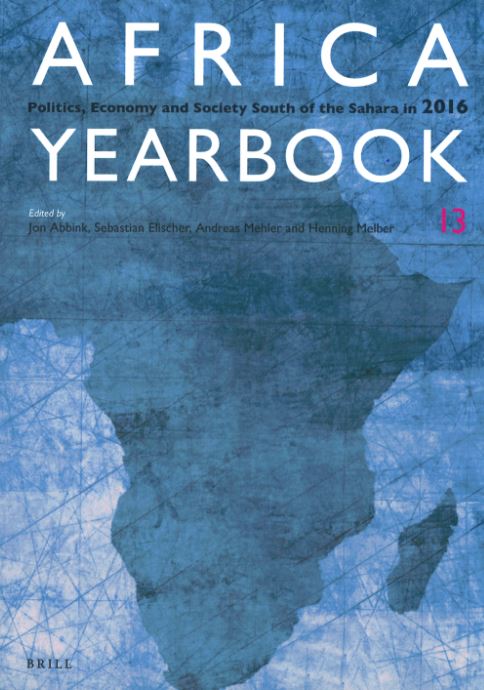New publications
New publications by ASCL staff and affiliates, and new books in our series, are frequently highlighted on this website. You may also use this RSS feed to keep informed. All recently added publications can be found in our database.
 The Africa Yearbook covers major domestic political developments, the foreign policy and socio-economic trends in sub-Sahara Africa – all related to developments in one calendar year. The Yearbook contains articles on all sub-Saharan states, each of the four sub-regions (West, Central, Eastern, Southern Africa) focusing on major cross-border developments and sub-regional organizations, as well as one article on continental developments and one on African-European relations. Prof. Jon Abbink is co-editor of this volume.
The Africa Yearbook covers major domestic political developments, the foreign policy and socio-economic trends in sub-Sahara Africa – all related to developments in one calendar year. The Yearbook contains articles on all sub-Saharan states, each of the four sub-regions (West, Central, Eastern, Southern Africa) focusing on major cross-border developments and sub-regional organizations, as well as one article on continental developments and one on African-European relations. Prof. Jon Abbink is co-editor of this volume.
 This is the latest volume in the African Dynamics series, published by the ASCL and Brill. Chapters in this volume contribute to our understanding of the theory, structure and practice of entrepreneurship in diverse African countries. Case studies examined include African multinational banks and businesses, female entrepreneurs, culture and entrepreneurship, finance and entrepreneurship and SMEs. Editors: Akinyinka Akinyoade, Ton Dietz and Chibuike Uche.
This is the latest volume in the African Dynamics series, published by the ASCL and Brill. Chapters in this volume contribute to our understanding of the theory, structure and practice of entrepreneurship in diverse African countries. Case studies examined include African multinational banks and businesses, female entrepreneurs, culture and entrepreneurship, finance and entrepreneurship and SMEs. Editors: Akinyinka Akinyoade, Ton Dietz and Chibuike Uche.
 The Federal Democratic Republic of Ethiopia has gone through a decade of significant economic change and political contestation since 2004. The ruling EPRDF party has redefined the country as a 'developmental state' and has tried to increase its presence on the African and world stage. Preceded by a new Introduction casting a broader perspective on some underlying trends, this monograph by Jon Abbink presents a chronology for 2004 to 2016, compiling the chapters on Ethiopia previously published in the Africa Yearbook.
The Federal Democratic Republic of Ethiopia has gone through a decade of significant economic change and political contestation since 2004. The ruling EPRDF party has redefined the country as a 'developmental state' and has tried to increase its presence on the African and world stage. Preceded by a new Introduction casting a broader perspective on some underlying trends, this monograph by Jon Abbink presents a chronology for 2004 to 2016, compiling the chapters on Ethiopia previously published in the Africa Yearbook.

